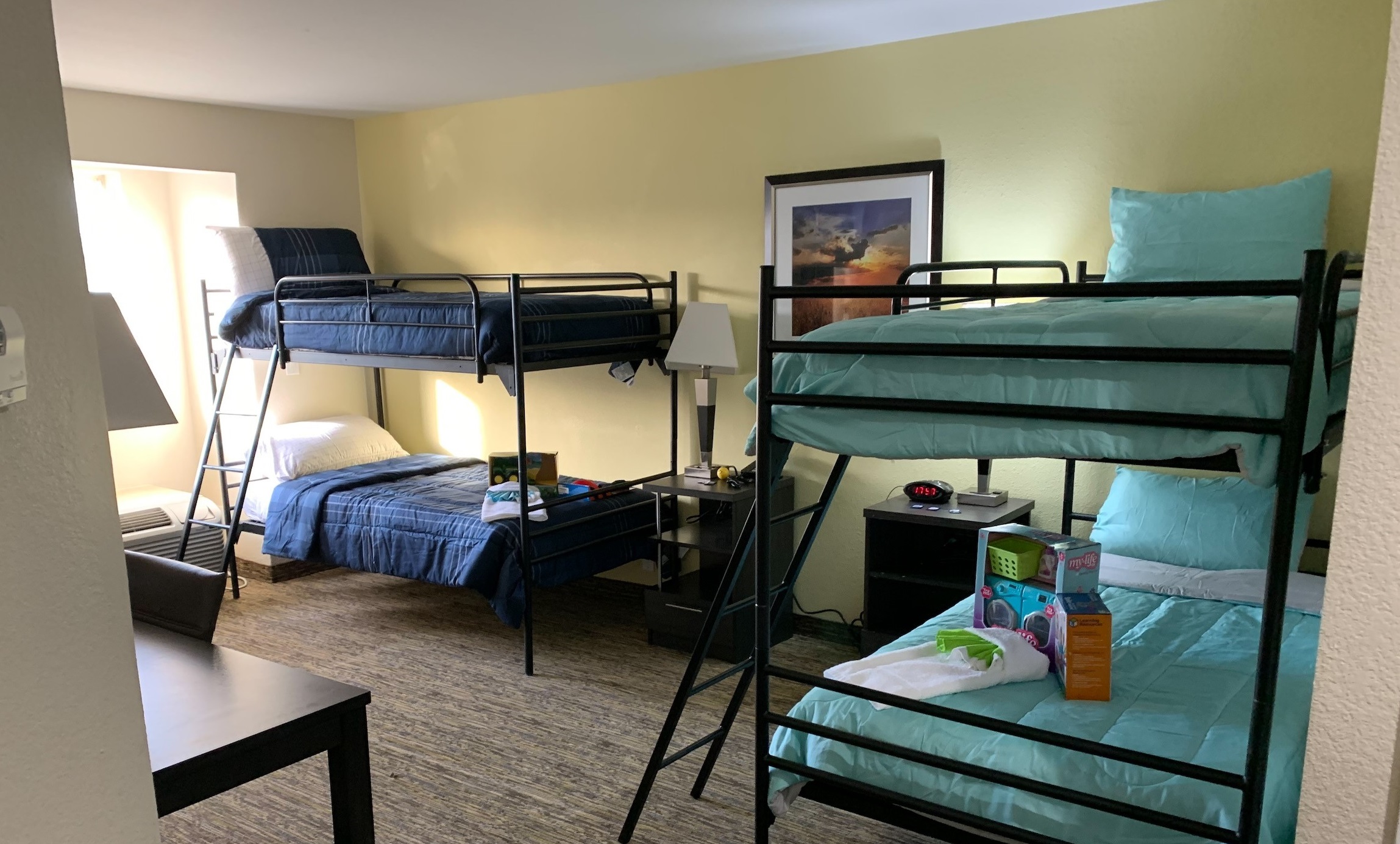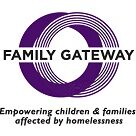How We Help

We use a two-generation approach to support our families by working with the adults and the children in the family to help them regain stability and self-sufficiency.
- Programs focus on housing and employment for adults and on education stabilization for children.
- Interventions include assessment and diversion, emergency shelter, supportive housing, case management, and an education program.
Learn more below.
Assessment & Diversion
- The Assessment & Diversion team works to find alternatives to shelter for families with children experiencing homelessness.
- Diversion is a national best practice for the prevention of homelessness. This practice avoids the trauma of homelessness for families by helping them identify immediate alternative housing arrangements and by connecting them to services and financial resources in the community.
In 2023, we…
- Pre-screened 5,628 callers through the Homeless Crisis Helpline to determine service eligibility.
- Identified 3,185 families as literally or imminently homeless; this is an estimated 7,962 children.
- Diverted approximately 1,211 families from shelter.
- Triaged approximately 872 families into shelter. 73% of these families were served in our emergency shelter or hotel overflow program.
Emergency Shelter

We operate 2 shelter locations: a 50-room shelter at a former Candlewood Suites property in Far North Dallas in partnership with the City of Dallas, and 10 rooms at The Salvation Army. In shelter, each family’s immediate needs for safety, housing, food, and other necessities are met. Our emergency shelters are the only ones in Dallas that serve all types of families and keep them together. This includes single parents with kids, families with older male children, multi-generational families, same gender couples with kids, and large families with complex backgrounds.
In 2023:
- Approximately 639 families were served in our emergency shelter and hotel overflow program.
- 372 families needed a short-stay in a hotel or pay-to-stay in a partner shelter because they were awaiting shelter space or had special circumstances that made shelter impractical or unsafe.
- 73% of families in our community who needed shelter care were served in our emergency shelter and hotel overflow program.
- Length of stay in shelter ranged from 1 to 365 days (average was 88 days), pointing to the complexity of housing larger families or those with multiple barriers to housing.
- Our shelter operated at 106% of capacity, on average, overflowing into non-sleeping rooms during inclement weather or peak service times.
Supportive Housing
We have over 100 units of supportive housing in apartment complexes throughout the community for post-shelter care. Our case managers are embedded in or mobilized to these apartment complexes for ongoing support. This can include monthly home visits, help with lease commitments, assistance with maintenance issues, and connection to resources.
Types of supportive housing programs include project-based vouchers through the Dallas Housing Authority, Permanent Supportive Housing (PSH) for families who have specifically documented disabilities, and Rapid Rehousing for families who have relatively fewer barriers to self-sufficiency and are capable of quickly regaining and sustaining stability
In 2023:
- We served 218 families in supportive housing.
- 48% of families increased their income during their supportive housing stay (HUD benchmark = 20%).
- 98% of families served in supportive housing remained stably housed (HUD benchmark = 77%)

General Case Management
While in emergency shelter, parents work with our case managers to identify the issues that led them to homelessness, to address any barriers they face in returning to stable housing, and to reinforce the positive attributes and resources of the family.
Vocational Case Management
Most of our families make 0-30% of the area median income, classifying them as “extremely low income.” Most housing in Dallas is priced for those who make 60% and above the area median income. Thanks to special funding from The Hirsch Family Foundation, we have a Vocational Case Manager who works to bridge this financial gap in our community and to connect our families to opportunities for income growth and stabilization.
In 2023:
- 72 adults found employment after working with our Vocational Case Manager.
- The average monthly income at entry was $385, and the average monthly income after vocational case management was $1,274.80.
- This is an average increase of $889.90 in monthly income.

